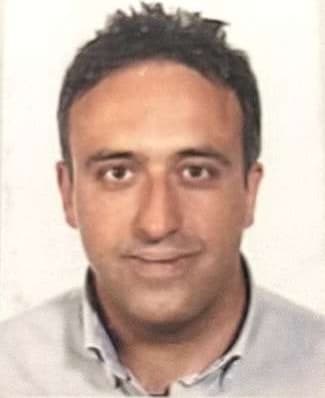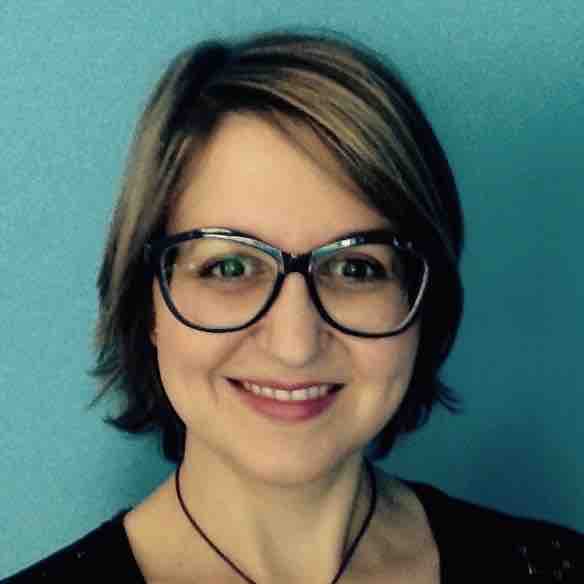Studying at the University of Verona
Here you can find information on the organisational aspects of the Programme, lecture timetables, learning activities and useful contact details for your time at the University, from enrolment to graduation.
Academic calendar
The academic calendar shows the deadlines and scheduled events that are relevant to students, teaching and technical-administrative staff of the University. Public holidays and University closures are also indicated. The academic year normally begins on 1 October each year and ends on 30 September of the following year.
Course calendar
The Academic Calendar sets out the degree programme lecture and exam timetables, as well as the relevant university closure dates..
| Period | From | To |
|---|---|---|
| I semestre (Lingue e letterature straniere) | Sep 30, 2019 | Jan 11, 2020 |
| II semestre (Lingue e letterature straniere) | Feb 17, 2020 | May 30, 2020 |
| Session | From | To |
|---|---|---|
| ESAMI LINGUE - sessione invernale | Jan 13, 2020 | Feb 15, 2020 |
| ESAMI LINGUE - sessione estiva | Jun 3, 2020 | Jul 25, 2020 |
| ESAMI LINGUE - sessione autunnale | Aug 24, 2020 | Sep 19, 2020 |
| Session | From | To |
|---|---|---|
| LAUREE LINGUE - sessione autunnale (a.a. 2018/19) | Nov 4, 2019 | Nov 9, 2019 |
| LAUREE LINGUE - sessione straordinaria (a.a. 2018/19) | Mar 30, 2020 | Apr 4, 2020 |
| LAUREE LINGUE - sessione estiva (a.a. 2019/20) | Jul 6, 2020 | Jul 11, 2020 |
| LAUREE LINGUE - sessione autunnale (a.a. 2019/20) | Nov 2, 2020 | Nov 7, 2020 |
| LAUREE LINGUE - sessione straordinaria (a.a. 2019/20) | Apr 7, 2021 | Apr 13, 2021 |
| Period | From | To |
|---|---|---|
| Festa Ognissanti (Lingue) | Nov 1, 2019 | Nov 1, 2019 |
| Sospensione delle lezioni | Nov 2, 2019 | Nov 2, 2019 |
| Vacanze di Natale (Lingue) | Dec 23, 2019 | Jan 6, 2020 |
| Vacanze di Pasqua (Lingue) | Apr 10, 2020 | Apr 14, 2020 |
| Festa della Liberazione (Lingue) | Apr 25, 2020 | Apr 25, 2020 |
| Festa del Lavoro (Lingue) | May 1, 2020 | May 1, 2020 |
| Sospensione delle lezioni | May 2, 2020 | May 2, 2020 |
| Festa del Santo Patrono (Lingue) | May 21, 2020 | May 21, 2020 |
| Sospensione delle lezioni | May 22, 2020 | May 23, 2020 |
| Festa della Repubblica (Lingue) | Jun 2, 2020 | Jun 2, 2020 |
| Vacanze estive (Lingue) | Aug 10, 2020 | Aug 15, 2020 |
Exam calendar
Exam dates and rounds are managed by the relevant Foreign Languages and Literatures Teaching and Student Services Unit.
To view all the exam sessions available, please use the Exam dashboard on ESSE3.
If you forgot your login details or have problems logging in, please contact the relevant IT HelpDesk, or check the login details recovery web page.
Should you have any doubts or questions, please check the Enrollment FAQs
Academic staff
 silvia.baroni@univr.it
silvia.baroni@univr.it
 stella.merlin@univr.it
stella.merlin@univr.it
 sara.paolini@univr.it
sara.paolini@univr.it
 massimo.scotti@univr.it
massimo.scotti@univr.it
Study Plan
The Study Plan includes all modules, teaching and learning activities that each student will need to undertake during their time at the University.
Please select your Study Plan based on your enrollment year.
1° Year
| Modules | Credits | TAF | SSD |
|---|
2° Year activated in the A.Y. 2020/2021
| Modules | Credits | TAF | SSD |
|---|
3° Year activated in the A.Y. 2021/2022
| Modules | Credits | TAF | SSD |
|---|
| Modules | Credits | TAF | SSD |
|---|
| Modules | Credits | TAF | SSD |
|---|
| Modules | Credits | TAF | SSD |
|---|
| Modules | Credits | TAF | SSD |
|---|
Legend | Type of training activity (TTA)
TAF (Type of Educational Activity) All courses and activities are classified into different types of educational activities, indicated by a letter.
Introduction to Germanic Philology (2021/2022)
Teaching code
4S003493
Teacher
Coordinator
Credits
6
Language
Italian
Scientific Disciplinary Sector (SSD)
L-FIL-LET/15 - GERMANIC PHILOLOGY
Period
II semestre (Lingue e letterature straniere) dal Feb 14, 2022 al May 28, 2022.
Learning outcomes
The course is an Introduction to Germanic Philology. It aims at providing basic knowledge on multi-disciplinary topics, such as historical linguistics, palaeography, codicology, textual criticism (including basic knowledge for the analysis of texts and manuscripts by means of Digital Humanities tools and methodologies), and cultural history characterizing this discipline. Expected Outcomes At the end of the course the student will have to prove: - to have acquired basic knowledge of methodologies and cultural contents which are necessary to analyse and interpret Germanic linguistic and literary traditions; - to have acquired proficiency in the correct specialized vocabulary related to every field of the discipline; - to be able to apply autonomously the knowledge and contents acquired in the different specialized fields of Germanic Philology, mainly focussing on historical linguistics and textual criticism (also by means of Digital Humanities tools and methodologies), in order to write contents and analyse texts, in compliance with the general learning outcomes of the study program.
Program
The course will offer the basics for the study of Germanic Philology in its multi- and interdisciplinary aspects of cultural, linguistic and historical-literary nature.
The first module will trace the birth and development of the discipline up to the present day. The so-called ‘Germani’ will be described through the direct reading of the sources, in particular of some passages chosen by Tacitus’ Germania, which will allow to reconstruct the social, political and cultural institutions of the Germanic peoples (family, assembly, military associations, role of women, religion, writing). The fundamental stages of their history, of conversion to Christianity and of the development of literacy will be retraced.
A second module will address essential issues concerning historical linguistics, framing Germanic first in its evolution from Indo-European as well as in its main features and also with regard to individual language families (with particular attention to West Germanic).
The third module will be devoted to the study of textual criticism within the Germanic vernacular traditions. Essential knowledge of book history, codicology and paleography will be imparted through the analysis of exemplary manuscripts building up the most significant cultural heritage of the Germanic traditions. The analysis will lead into the historical recovery of the text through the principles of textual criticism (meant in its evolution from the genealogical method to the so-calle New Philology).
The last module will concern the birth of the Germanic vernacular literatures on the example of early representative eschatological texts. The Old High German Muspilli, some stanzas taken from the Old Norse Prophecy of the Seer (Völuspá, Poetic Edda, I) and some excerpts from Gylfi’s Deception (Gylfaginning, Snorri’s Edda) will be analyzed starting from the manuscripts in which they are preserved. The module includes reading, analysis (linguistic-philological and historical-cultural) and translation of the texts, which will be taken into consideration starting from the manuscripts in which they are preserved.
The above mentioned readings will be accessible on the Moodle platform, whereas for the other exam texts indicated in the bibliography, please refer to the University Library Catalogue.
Teaching:
As established by the university for the A.Y. 2021/2022, the course may take place either on the Zoom institutional platform, in the form of frontal streaming lessons (possibly supplemented by some recorded lessons), or face-to-face according to the indications that will be provided in due time. Any changes will be announced before the start of the course by means of a notice on the instructor's personal page and on the Moodle platform, to which everyone is required to register. Any suspension of lessons or changes will be communicated in the same way.
The course materials for attending students consist of the teacher's lectures, slides and other materials that will be made available on Moodle. The program for non-attending students must be agreed in advance. For this reason, non-attending students are asked to contact the teacher via email (via an institutional address @ students.univr.it) for a possible online reception (or in presence, always health conditions permitting).
Bibliography
Examination Methods
There will be an oral exam on Zoom or in person (depending on the evolution of the pandemic) and in both cases it will follow the official schedule published by the University. For those attending there will be a pre-roll call to be agreed together.
The oral exam will assess both the level of acquired contents and the ability to critically address the topics covered during the course, and to create connections among them. Part of the evaluation will also concern the correct and consistent presentation of the acquired knowledge; another part will verify the competent and appropriate use of the philological micro-language. During the exam the assimilation of the primary sources can be tested by reading, translation, and comment of short excerpts selected from the texts studied during the course and provided by the instructor during the exam. The final result is expressed out of 30 and it is to be understood as an overall evaluation of the results achieved.
For non-attending students, the exam will be oral and will follow the indications above.
Type D and Type F activities
To discover all the teaching activities accredited by the foreign teaching college click here
Career prospects
Module/Programme news
News for students
There you will find information, resources and services useful during your time at the University (Student’s exam record, your study plan on ESSE3, Distance Learning courses, university email account, office forms, administrative procedures, etc.). You can log into MyUnivr with your GIA login details: only in this way will you be able to receive notification of all the notices from your teachers and your secretariat via email and soon also via the Univr app.
Student login and resources
Gestione carriere
Assegnazione tutore
Attività accreditate D/F
Calendario didattico dettagliato
Cambio lingua curriculare
Competenze informatiche
Competenze linguistiche (prima e seconda lingua)
Competenze linguistiche in triennale (terza lingua CFU F)
Compilazione del piano didattico
Corso di Lingua portoghese
Erasmus+ e altre esperienze all'estero
Linguistic training CLA
Presentazione dei corsi di studio e Open day
Graduation
Saperi minimi
Stage e tirocini
Le attività di stage sono finalizzate a far acquisire allo studente una conoscenza diretta in settori di particolare interesse per l’inserimento nel mondo del lavoro e per l’acquisizione di abilità professionali specifiche.
Le attività di stage sono svolte sotto la diretta responsabilità di un singolo docente presso studi professionali, enti della pubblica amministrazione, aziende accreditate dall’Ateneo veronese.
I crediti maturati in seguito ad attività di stage saranno attribuiti secondo quanto disposto nel dettaglio dal “Regolamento d’Ateneo per il riconoscimento dei crediti maturati negli stage universitari” vigente.
- Tutte le informazioni in merito agli stage per futuri studenti sono disponibili alla pagina Stage e tirocini.
- Tutte le informazioni in merito agli stage per studenti iscritti sono pubblicate in MyUnivr - come fare per - stage e tirocini.
- Tutte le informazioni in merito agli stage per le aziende sono disponili alla pagina Stage e tirocini per azienze.
Ulteriori informazioni al seguente link https://www.univr.it/it/i-nostri-servizi/gestione-carriere-studenti-lingue-e-letterature-straniere/stage-e-tirocini-lingue-e-letterature-straniere

 +39 045802 8409
+39 045802 8409
















































